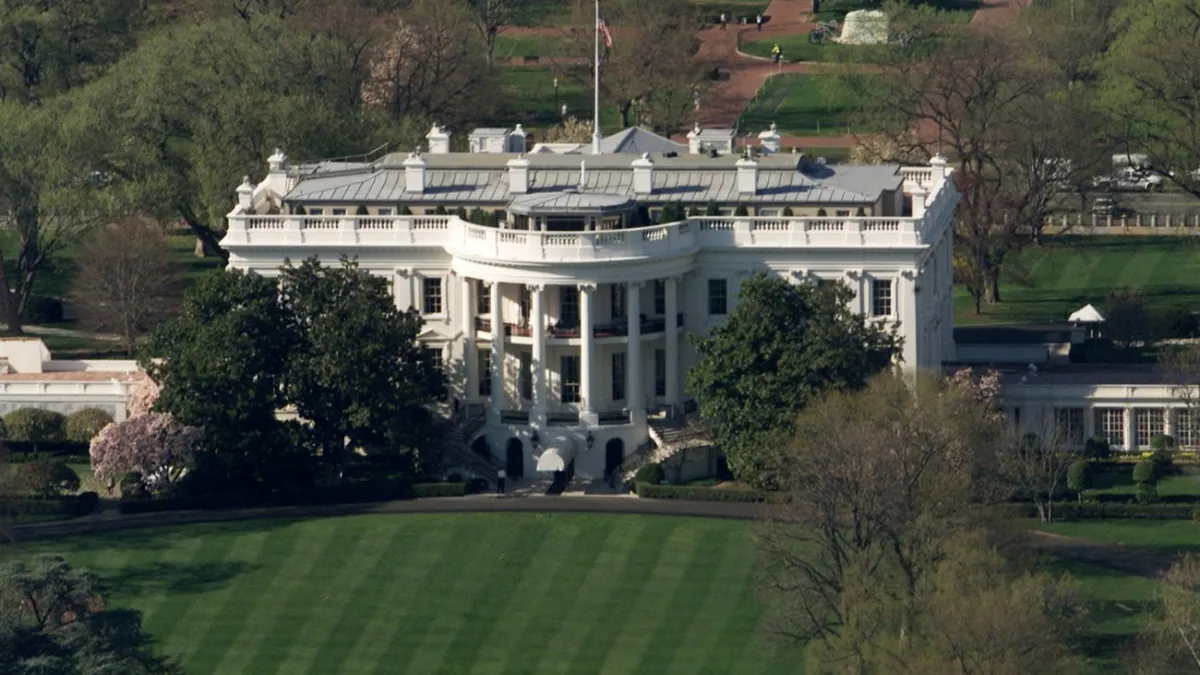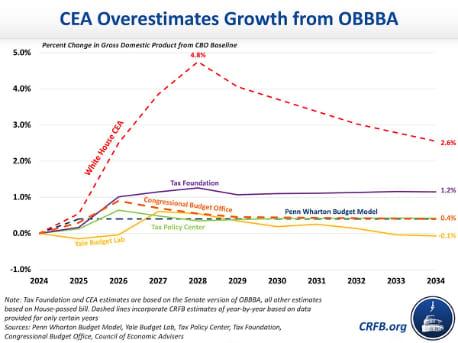
The White House released an analysis Wednesday indicating that the massive Republican policy bill would generate enormous growth in investment, wages and the overall economy in the coming years, producing a bounty in tax revenues that would slash budget deficits and bring the national debt under control.
According to the Council of Economic Advisers, whose members were appointed by President Trump, the One Big Beautiful Bill Act would increase real gross domestic product by 4.6% to 4.9% over the next four years, driven by a 7.3% to 10.2% increase in real investment that creates and protects 6.9 to 7.2 million jobs. Wages would rise by $4,000 to $7,200 per worker in real terms, producing an increase in take-home pay of $7,600 to $10,900 for a typical family of four.
Over 10 years, the CEA says, economic growth produced by the tax provisions in the bill would reduce deficits and interest paid on the debt by $2.1 to $2.3 trillion, while deregulation and energy policies would further reduce the deficit by $1.3 trillion to $3.7 trillion. The bill also includes spending cuts totaling $1.8 trillion, bringing the total deficit savings to roughly $5 trillion to $7 trillion. Adding in revenues from Trump’s tariff policies, the White House is claiming total deficit reduction of between $8 and $11 trillion as a result of the president’s overall economic agenda. And as the economy soars, fueled by the tax cuts and policy changes, the debt-to-GDP ratio would fall, falling to between 88% and 99% after 10 years, well below the projected level of 117% to 125%.
“With the OBBB, America is poised to enter a new golden age of improved prosperity and fiscal responsibility,” the CEA grandly concluded.
A rosy scenario: While the report provides much-needed ammunition for Republicans, including House Speaker Mike Johnson, who insist that the massive bill will not increase deficits, few economists beyond the walls of the White House are likely to put much stock in the projections.
Most analysts have concluded that the bill would boost growth only modestly, with one finding it would actually reduce it, and few think it would do anything but increase deficits substantially. The Congressional Budget Office recently issued projections showing it would increase deficits by $2.8 trillion over 10 years.
“Just so we all understand, the CEA numbers are ridiculous,” said Marc Goldwein of the Committee for a Responsible Federal Budget, who also posted the chart below.
Jessica Riedl, a budget expert at the conservative Manhattan Institute, had a similar reaction. “I'm sorry, but these White House budget and economic estimates are absurd,” she wrote. “Not even conservative economic modelers come within miles of these growth and savings estimates because they just do not make sense.”
The bottom line: Leading Republicans will likely continue to argue that their massive policy bill will make the economy boom while reducing deficits, but few experts of any political stripe outside of the White House and Congress are likely to give that argument much credence, however politically effective it may be.
